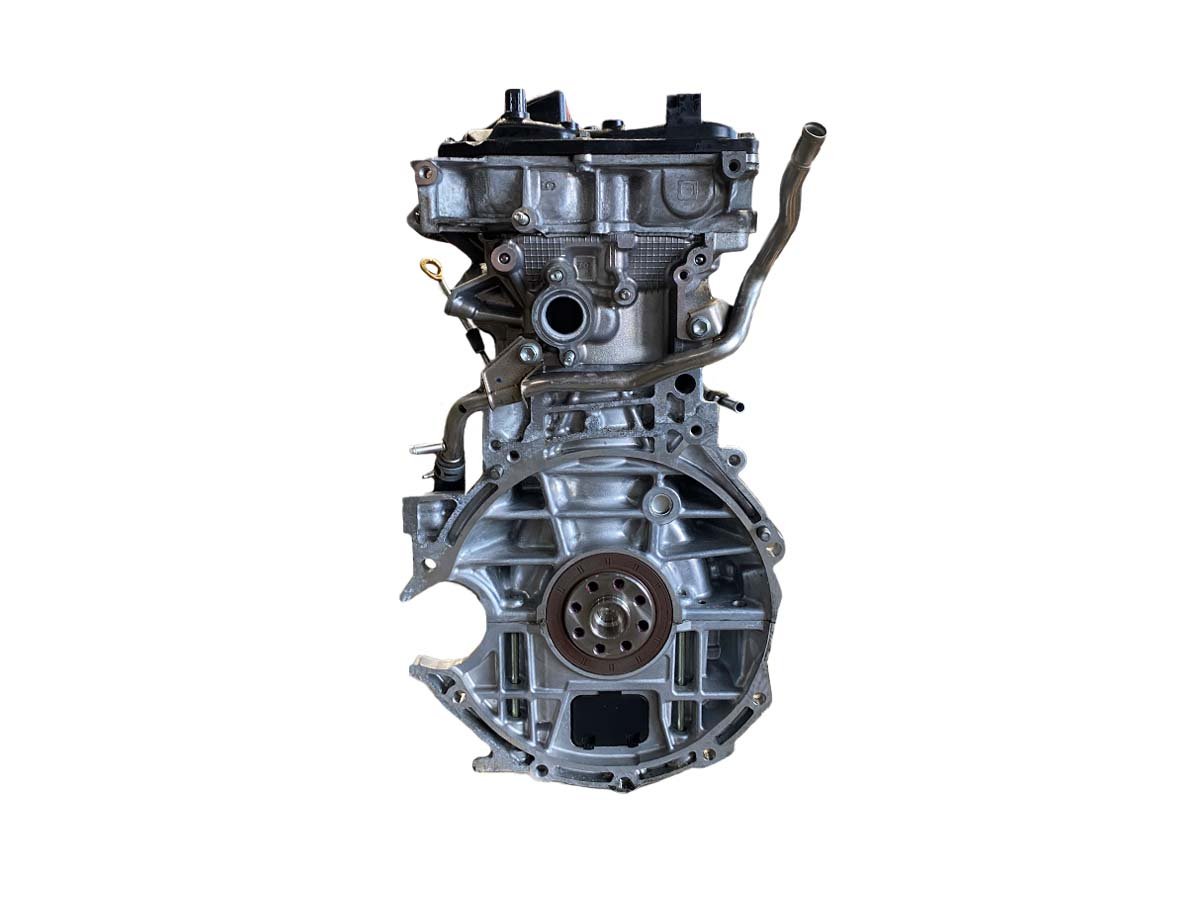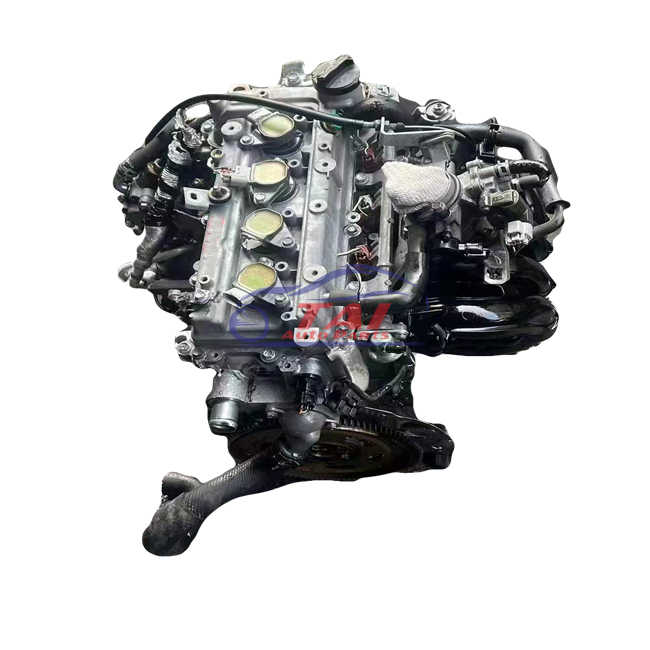The Background and Development of the Toyota RunX RSI in the Automotive World
The Background and Development of the Toyota RunX RSI in the Automotive World
Blog Article
Explore Quality and Value: Your Guide to Getting a Previously Owned Engine
When thinking about the acquisition of a pre-owned engine, comprehending the detailed equilibrium between high quality and worth is critical. An extensive assessment of engine background, integrity, and problem is important to guarantee an audio investment. By performing proper evaluations and research, potential purchasers can browse the intricacies of the market better. Nevertheless, the subtleties of warranty alternatives and rates approaches can significantly affect the total decision-making process. As you contemplate these elements, one inquiry continues to be: what particular aspects will inevitably assist your choice in this important financial investment?
Understanding Engine Types
When taking into consideration the acquisition of a used engine, understanding of the various engine types is necessary for making an educated decision. Engines can normally be classified into 2 major types: inner combustion engines and electric engines. Internal burning engines, which include gas and diesel variations, rely upon the combustion of fuel to generate power. Fuel engines are generally lighter and rev higher, making them suitable for efficiency lorries, while diesel engines are renowned for their torque and fuel performance, often preferred in sturdy applications.
On the other hand, electrical engines use electricity kept in batteries to power the lorry, using a cleaner choice with less moving components and reduced maintenance needs. Within these groups, there are better differences, such as two-stroke versus four-stroke internal burning engines, and various electrical motor configurations.
Comprehending these distinctions is vital, as they influence efficiency, compatibility with existing car systems, and long-lasting operational prices. By familiarizing oneself with the various sorts of engines available, potential purchasers can much better examine their needs and choose that line up with their vehicle's needs and their personal preferences.

Evaluating Engine Condition
A comprehensive assessment of engine problem is critical for anybody thinking about the acquisition of a second-hand engine. Start with an aesthetic inspection; check for signs of oil leakages, rust, or any type of physical damages to the engine block. A clean engine is commonly a sign of great maintenance techniques, while extreme crud might recommend disregard.
Following, examine the engine's elements, including the timing belt, gaskets, and seals. Try to find wear and tear, as these components can be costly to replace. Additionally, analyze the engine installs, as harmed places might bring about vibrations and further mechanical problems.
A compression examination is important to assess interior engine health and wellness. Consistent compression throughout all cyndrical tubes suggests a well-maintained engine, whereas significant discrepancies might aim to interior damage or wear.
Listening to the engine during a start-up can offer beneficial understandings; any kind of unusual sounds, such as knocking or rattling, may recommend deeper issues. If feasible, request an examination run to assess performance under load. By carefully assessing these elements, possible buyers can make educated choices and secure a quality used engine.
Checking Engine Background
Recognizing the engine's history is critical for making a knowledgeable acquisition. Understanding of previous use, maintenance records, and any type of past damages can dramatically influence the engine's reliability and longevity. Begin by asking for the automobile recognition number (VIN) or engine serial number, which allows you to map the engine's background.
Make use of offered sources, such as Carfax or AutoCheck, to get an automobile background report. This record will certainly provide important insights, including mishap history, service documents, and previous possession details. Toyota RunX RSI. Pay specific attention to any type of indications of severe damage or duplicated repair work, which might suggest underlying concerns
Inquire about maintenance regimens carried out on the engine. Regular oil adjustments, timing belt substitutes, and various other preventative steps mirror liable possession. Additionally, ask if the engine has actually undergone any kind of adjustments, as non-standard alterations can affect efficiency and compatibility with your car.
Finally, when possible, look for verification from a trusted mechanic who can examine the engine's problem based upon its background (Toyota RunX RSI). This comprehensive investigation will assist you prevent possible mistakes and make certain that your investment is worthwhile and audio
Service Warranty and Return Plans
Acquiring a pre-owned engine usually comes with varying warranty and return plans that can significantly impact your decision. When thinking about a made use of engine, it is important to thoroughly examine the service warranty choices given by the seller.

In addition, trusted sellers often offer documentation that outlines the warranty and return process, guaranteeing transparency. Always request for this information before completing your purchase. A well-defined service warranty and return policy can provide assurance and secure your financial investment, making it an indispensable part of the decision-making process when getting a pre-owned engine.
Finding the most effective Bargains
When seeking the very best offers on a used engine, it is vital to carry out detailed research and compare rates from various vendors. Begin by checking out online industries, auto forums, and regional salvage lawns to collect an extensive understanding of the marketplace. Making use of cost comparison devices can improve this procedure, highlighting affordable rates across various systems.

Take into consideration timing your purchase purposefully. Seasonal fluctuations popular can affect prices, with certain times of the year providing better bargains. Additionally, be open find this to bargaining costs; numerous sellers might want to decrease their asking rate, particularly if the engine has actually been detailed for an extensive duration.
Final Thought
In recap, acquiring a used engine demands a detailed assessment of quality and value. Evaluating engine condition via evaluations and tests, verifying its background, and understanding guarantee and return plans are essential steps.
When taking into consideration the acquisition of a pre-owned engine, comprehension of the various engine types is crucial for making an educated choice. Engines can usually be categorized right into two primary kinds: inner combustion engines and electrical engines. Gasoline engines are generally lighter and rev greater, making them ideal for performance automobiles, while diesel engines are renowned for their torque and gas effectiveness, often favored in heavy-duty applications.
A thorough analysis of engine problem is critical for anybody considering the purchase of a pre-owned engine. Beginning by asking for the automobile recognition number (VIN) or engine serial number, which allows you to map the engine's click to read history.
Report this page